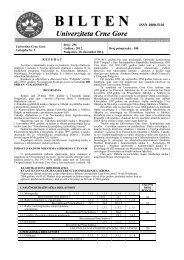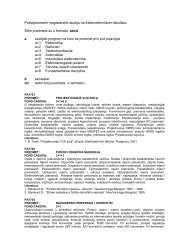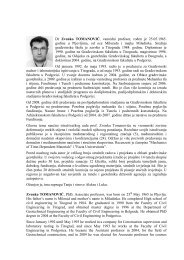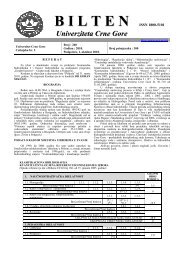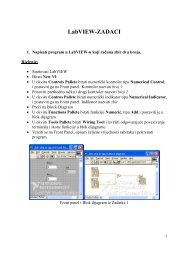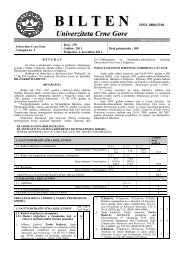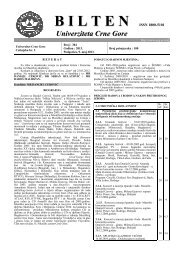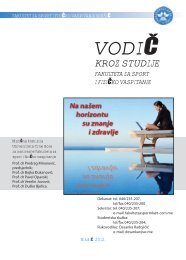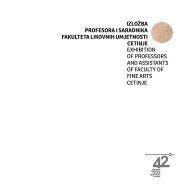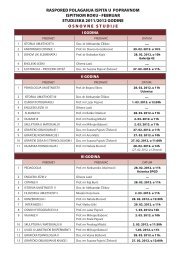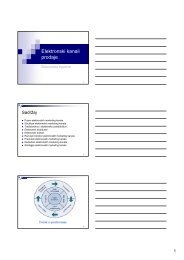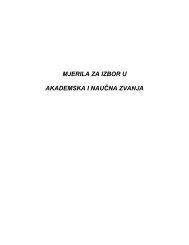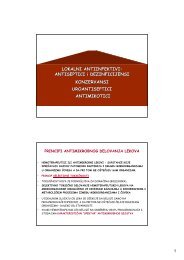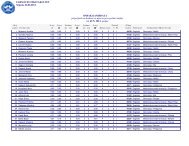WHO monographs on selected medicinal plants - travolekar.ru
WHO monographs on selected medicinal plants - travolekar.ru
WHO monographs on selected medicinal plants - travolekar.ru
Create successful ePaper yourself
Turn your PDF publications into a flip-book with our unique Google optimized e-Paper software.
F<strong>ru</strong>ctus Agni Casti<br />
for 1–4 days prior to menst<strong>ru</strong>ati<strong>on</strong> that resolves up<strong>on</strong> the initiati<strong>on</strong> of<br />
menst<strong>ru</strong>ati<strong>on</strong>, is c<strong>on</strong>sidered to be within normal physiology. N<strong>on</strong>-cyclic<br />
breast pain lasting for five or more days should be brought to the attenti<strong>on</strong><br />
of a health care provider. Several open (unc<strong>on</strong>trolled) trials (28, 51–<br />
56) and three randomized c<strong>on</strong>trolled clinical trials (28, 29, 56–58) have<br />
assessed the safety and efficacy of extracts of the f<strong>ru</strong>it for the treatment of<br />
cyclic mastalgia.<br />
A randomized, double-blind, placebo-c<strong>on</strong>trolled clinical trial involving<br />
104 women with cyclic breast pain (at least 3 cycles) assessed the effects of<br />
a preparati<strong>on</strong> of the f<strong>ru</strong>it (tincture 1:5 equivalent to 2 g of the f<strong>ru</strong>it in 53%<br />
ethanol) for the treatment of cyclic breast pain (58). The patients were<br />
treated with either placebo, tincture (30 drops twice daily), or tablets (<strong>on</strong>e<br />
tablet twice daily) for three cycles. Patients assessed the intensity of breast<br />
pain <strong>on</strong>ce per cycle using a visual analogue scale and also recorded the<br />
presence of menst<strong>ru</strong>al bleeding and the intensity of pain in a diary. Prolactin<br />
levels were also measured during the premenst<strong>ru</strong>al week of cycles <strong>on</strong>e<br />
and three. At the end of the third cycle of treatment, a significant reducti<strong>on</strong><br />
in breast pain was observed in the treated patients as compared with<br />
those who received placebo (tincture, p = 0.006; tablets, p = 0.0076). Neither<br />
the tablets nor the tincture of c<strong>ru</strong>de d<strong>ru</strong>g had any effect <strong>on</strong> c<strong>on</strong>centrati<strong>on</strong>s<br />
of progester<strong>on</strong>e, follicle stimulating horm<strong>on</strong>e or luteinizing horm<strong>on</strong>e.<br />
While the basal prolactin levels decreased in both treatment groups,<br />
this was not statistically significant when compared with placebo (58).<br />
A sec<strong>on</strong>d randomized, placebo-c<strong>on</strong>trolled, double-blind study with a<br />
similar design compared the tincture (30 drops = 1.8 ml, twice daily for<br />
3 cycles) with placebo for the treatment of 97 women (n = 48 in the treatment<br />
group; 49 in the placebo group) who had had breast pain at least<br />
5 days prior to menses in the last cycle before the study (57). A visual<br />
analogue scale was used for assessment of the efficacy. Intensity of breast<br />
pain diminished more quickly in the group that received the tincture. The<br />
study design and durati<strong>on</strong> were similar to that of Wuttke et al. (57, 58).<br />
The results of this study showed a decrease in the visual analogue scale<br />
scores of women in both the treatment and the placebo groups. However,<br />
compared with women in the placebo group, those in the treatment group<br />
had significantly lower visual analogue scale values at the end of each cycle<br />
(p = 0.018, 0.006 and 0.064 for cycles 1, 2 and 3, respectively).<br />
In a randomized, placebo-c<strong>on</strong>trolled trial the effects of a Vitex agnuscastus<br />
soluti<strong>on</strong> and a placebo (double-blind) were compared with that of<br />
gestagen (lynestrenol) in 160 women with mastalgia (59). A complete remissi<strong>on</strong>,<br />
or improvement of symptoms, was reported in 82.1%, 74.5%,<br />
and 36.8% of the patients in the gestagen, chaste tree, and placebo groups,<br />
19



